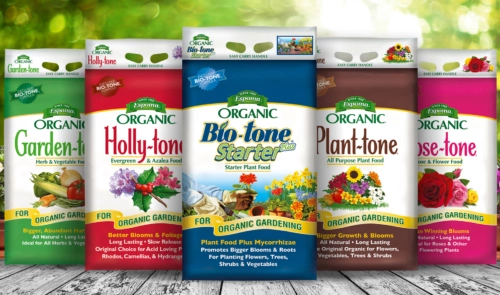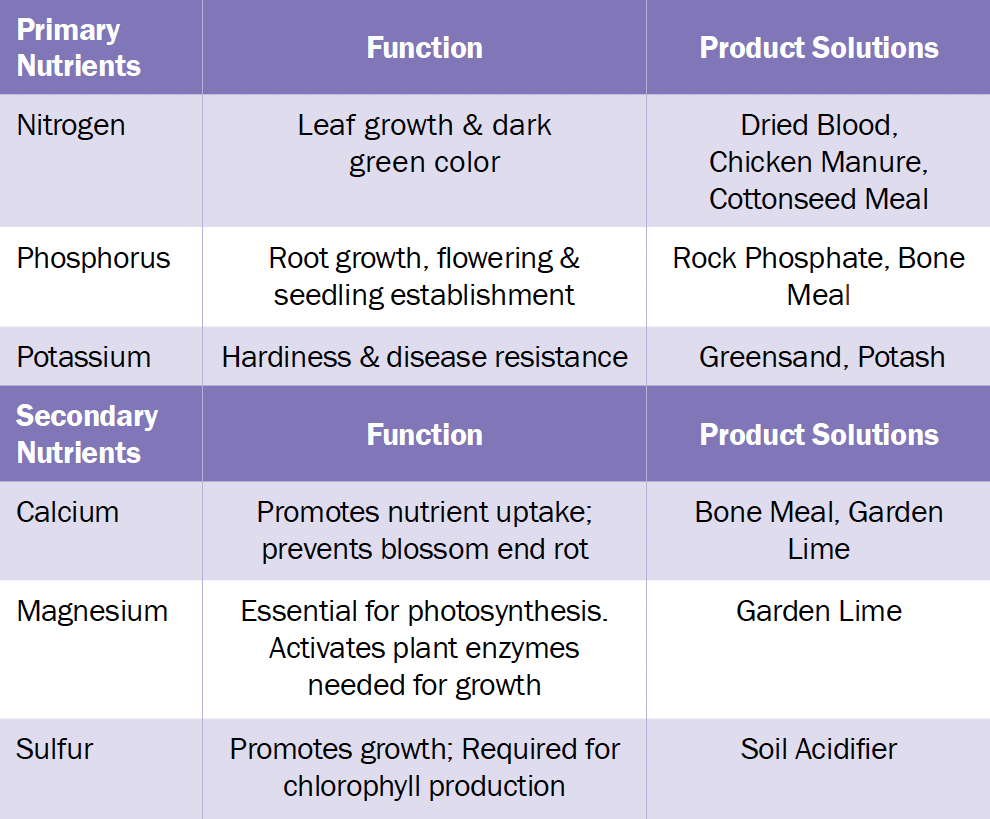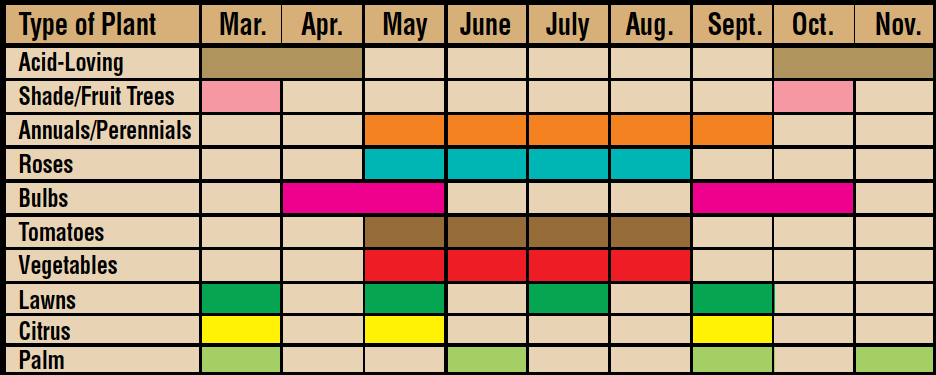
Like all living things, plants need proper nutrition to grow. There are 19 nutrients considered essential for plant growth. Carbon, hydrogen and oxygen are supplied by air and water. Plant roots absorb the remaining 16 from the surrounding soil.
While some soils may already contain these nutrients, they may not be in a form available for plant growth. Many new homes have had the topsoil removed and are left with compact soils lacking organic matter and a nutrient reservoir. The best way to ensure that these nutrients are available in your soil is through regular applications of Espoma Tone plant foods.
Plant Nutrition
The mineral nutrients are divided into three groups based on their relative abundance in plants: Primary Nutrients (or Major Nutrients), Secondary Nutrients (or Minor Nutrients), and Trace Nutrients (or Micronutrients). Although the major nutrients are needed in the greatest quantities, a deficiency of any one nutrient can prevent growth or make plants more susceptible towards disease.

Reading a Label
When looking at a plant food label, you will notice three numbers separated by hyphens, e.g. 5-3-3. These numbers represent the minimum percentages guaranteed (by weight) for the three Major Nutrients. For example, a 5-3-3 plant food contains a minimum of 5% nitrogen, 3% phosphate, and 3% potash.
Types of Plant Foods
When nutrients become available to a plant, they are in the same chemical form regardless of whether they were from a synthetic or organic plant food. However, this statement fails to acknowledge that the process by which plants are fed greatly differs between organic and synthetic fertilizers. It is this process which makes the use of organic fertilizers preferred over synthetic ones. There are generally three types of plant foods (see table). Water Soluble plant foods are mixed with water and applied with a watering can or hose end sprayer. They offer immediate nutrition but do not last long and require frequent applications. Controlled Release products last longer but lack many of the benefits that Natural Organics offer.

Planting Tips
- Dig hole twice as wide and same depth as the root ball.
- Loosen roots and spread them into prepared hole.
- Remove 1/2 of the soil and replace it with compost, peat moss or Espoma Organic® Garden Soil.
- Mix in the appropriate amount of Bio-tone® Starter Plus.
- Refill hole with amended soil.
- Do not mound stems. Water thoroughly and add mulch to conserve water and control weeds.
Feeding Tips
- In general, feed trees and shrubs twice a year – Spring and Fall.
- In general, feed flowers and vegetables once per month through the growing season.
- Apply plant food like salt and pepper, spreading thinly around drip line of plant.
- Do not apply plant food any closer than three inches to stem of plant.
- Wash off any plant food that falls on stems or foliage.
- Water thoroughly and add mulch to help conserve water and control weeds.

